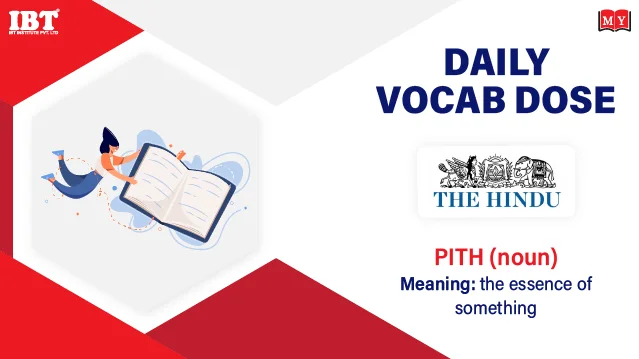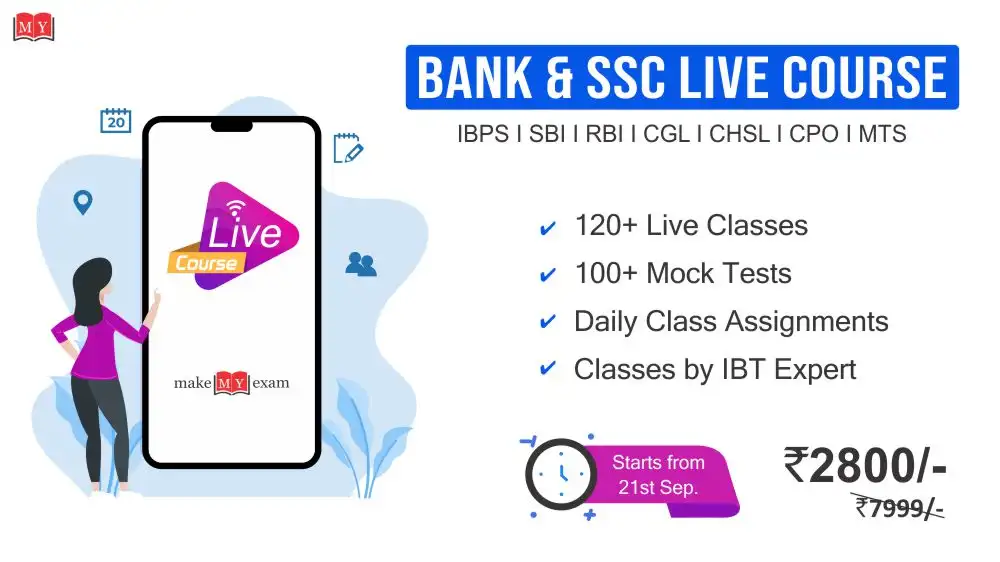Vocabulary - Exceptional English Words With Meanings : 29 October 2020

Exceptional words of English vocabulary from the newspaper ‘The Hindu’ are listed here. Go through these words and read the usages to learn how to use them in sentences. After this, take the quiz based on the vocabulary to check how much you learnt. This will really help you boost up your learning.
Happy learning!!!
1. MODERATION (noun) – संयम
Pronunciation: mo·duh·rei·shn
Meaning: the avoidance of excess or extremes
Synonyms: restraint, fairness, patience, temperance, constraint, balance
Antonyms: extremism, intemperance, unlimitedness
Usage: Eating fatty foods is acceptable as long as you do it in moderation without overdoing it.
2. IGNORANCE (noun) – अज्ञान
Pronunciation: ig·nuh·ruhns
Meaning: lack of knowledge or information
Synonyms: unawareness, inexperience, illiteracy, innocence, unconsciousness, insensitivity, unfamiliarity
Antonym: understanding, education, knowledge
Usage: His ignorance biased him against popular music.
3. TRIFLING (adjective) – तुच्छ
Pronunciation: trai·fuh·luhng
Meaning: unimportant or trivial
Synonyms: trivial, unimportant, insignificant, minor, inconsiderable, nominal, negligible
Antonym: important, serious, considerable
Usage: My time is too valuable to spend on trifling matters that have little worth.
4. INTERFERE (verb) – हस्तक्षेप करना
Pronunciation: in·tuh·feeuh
Meaning: intervene in a situation without invitation or necessity
Synonyms: meddle, intervene, intrude, impede, inhibit, obtrude
Antonyms: aid, allow, assist
Usage: I never interfere in his business.
5. COLLECTIVE (adjective) – सामूहिक
Pronunciation: kuh·lek·tuhv
Meaning: done by people acting as a group
Synonyms: composite, concerted, corporate, cumulative, mutual, shared, unified
Antonyms: separate, unshared, disjoint
Usage: The invention is a collective effort.
6. CHOKE (verb) – दम घुटना
Pronunciation: chowk
Meaning: to have issue in breathing
Synonyms: suffocate, asphyxiate, smother, stifle, strangle, throttle
Antonyms: free, loose, release
Usage: Peanuts can choke a small child.
7. HAPHAZARD (adjective) – बेतरतीब
Pronunciation: hap·ha·zuhd
Meaning: lacking any obvious principle of organization
Synonyms: random, unplanned, unsystematic, unmethodical, disorganized, disorderly, irregular
Antonyms: methodical, systematic, organized
Usage: Files have been stored in such a haphazard manner that they are impossible to find.
8. ENGENDER (verb) – उत्पन्न करना
Pronunciation: uhn·jen·duh
Meaning: cause or give rise to
Synonyms: cause, produce, create, generate, arouse, provoke, trigger
Antonyms: destroy, halt, prevent
Usage: Some people believe violent video games engender feelings of hostility in young people.
9. PITH (noun) – सार
Pronunciation: pith
Meaning: the essence of something
Synonyms: essence, crux, core, heart, center, gist, substance
Antonyms: exteriority, enervation, exterior
Usage: The pith of his speech was focused on the importance of education.
10. PATRIARCH (noun) – कुलपिता
Pronunciation: pei·tree·aak
Meaning: the male head of a family or tribe
Synonyms: father, leader, elder, grandfather, founder, ancestor
Antonyms: matriarch
Usage: James became the patriarch of his household after his father died.
Now choose any 2 or 3 words, try to use them in your own sentences and share your sentences in the comment section. This will help you to retain the learnt words for a longer duration.
3 likes |
0 comment
 4.5/5
4.5/5









